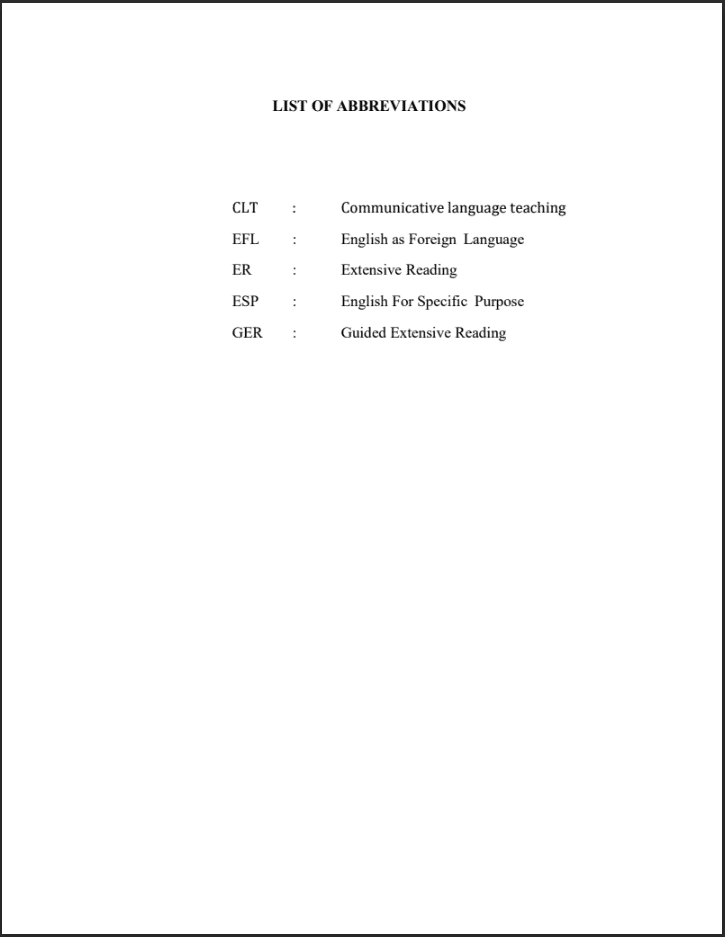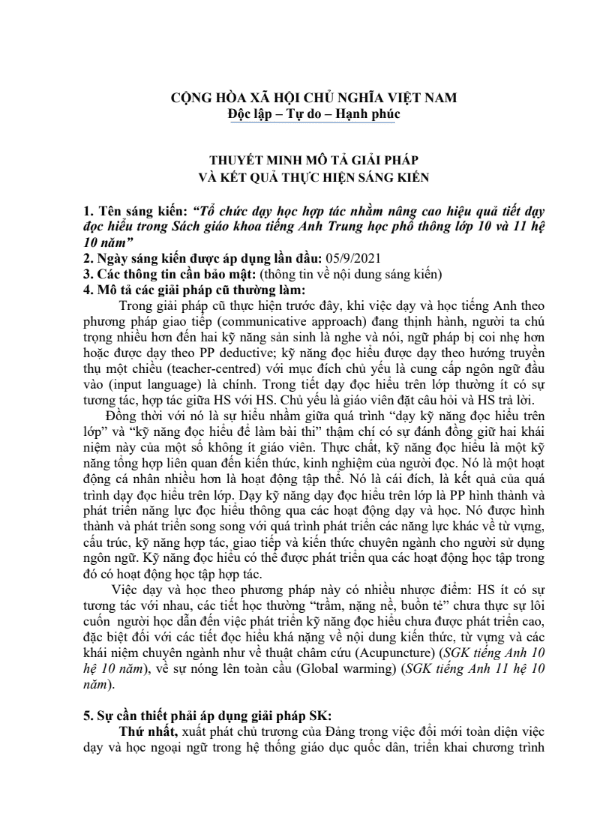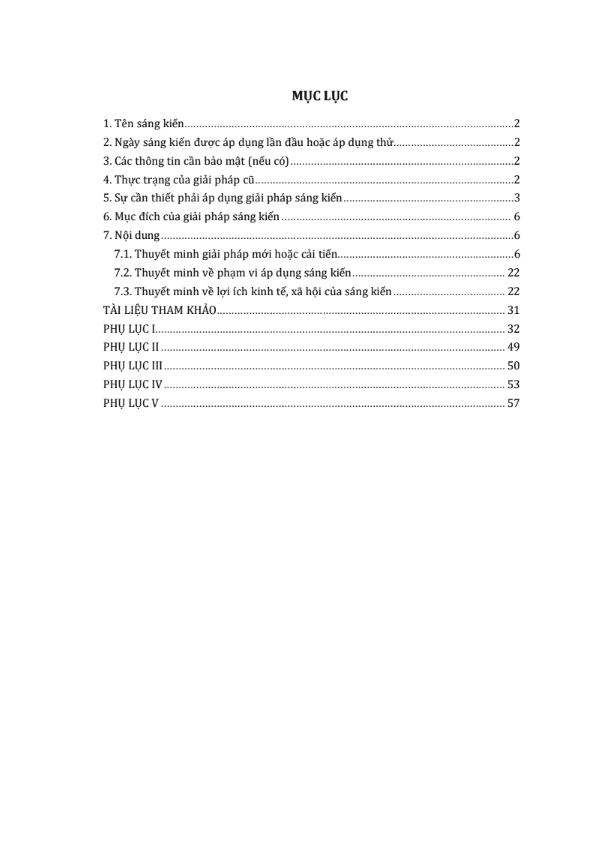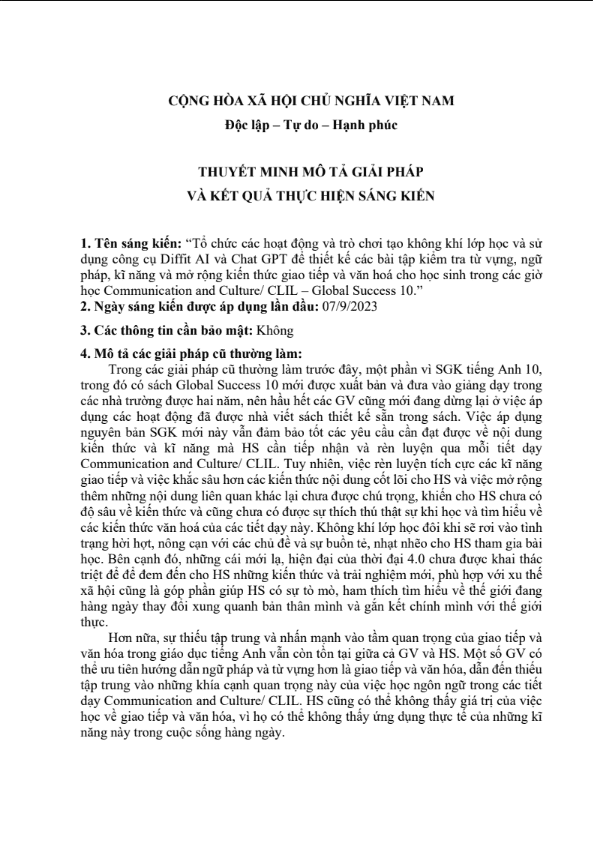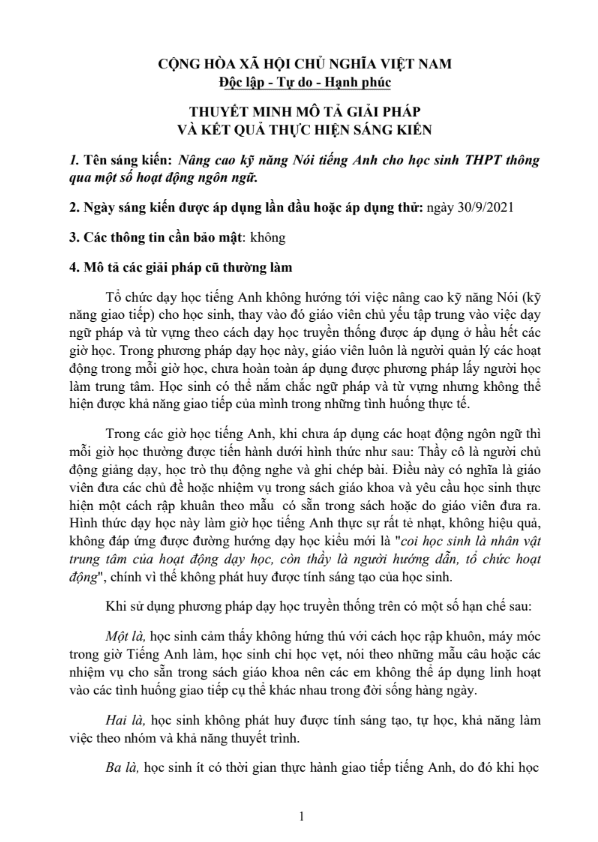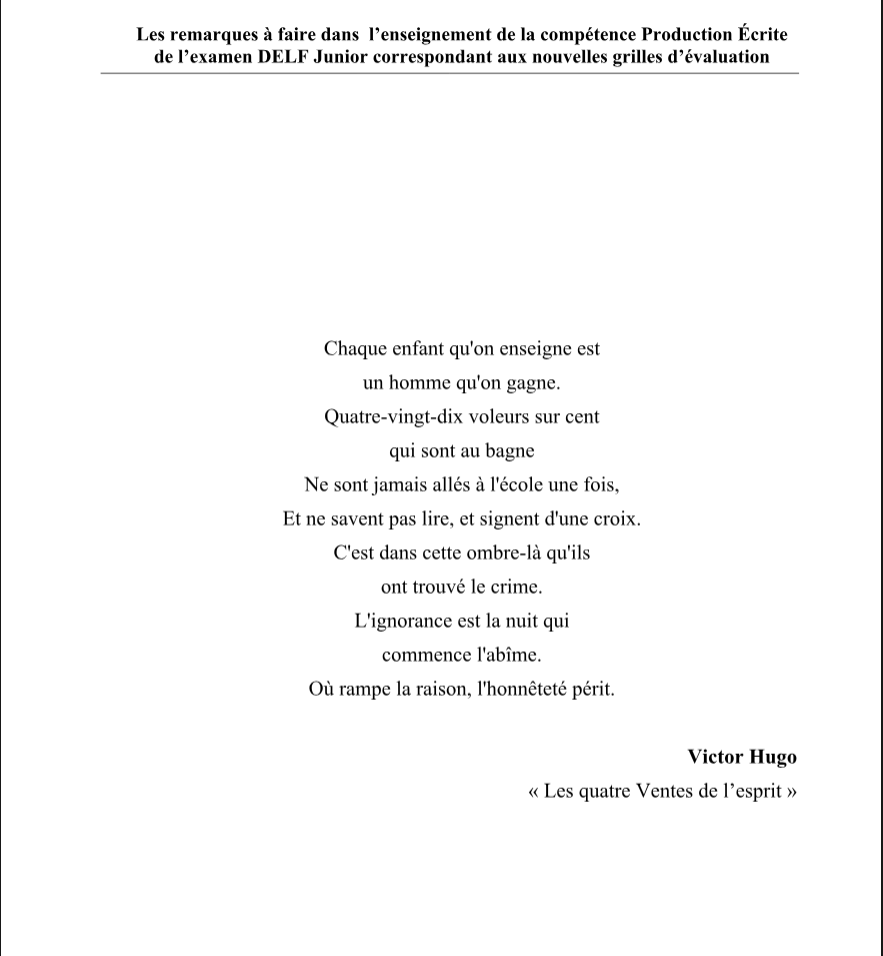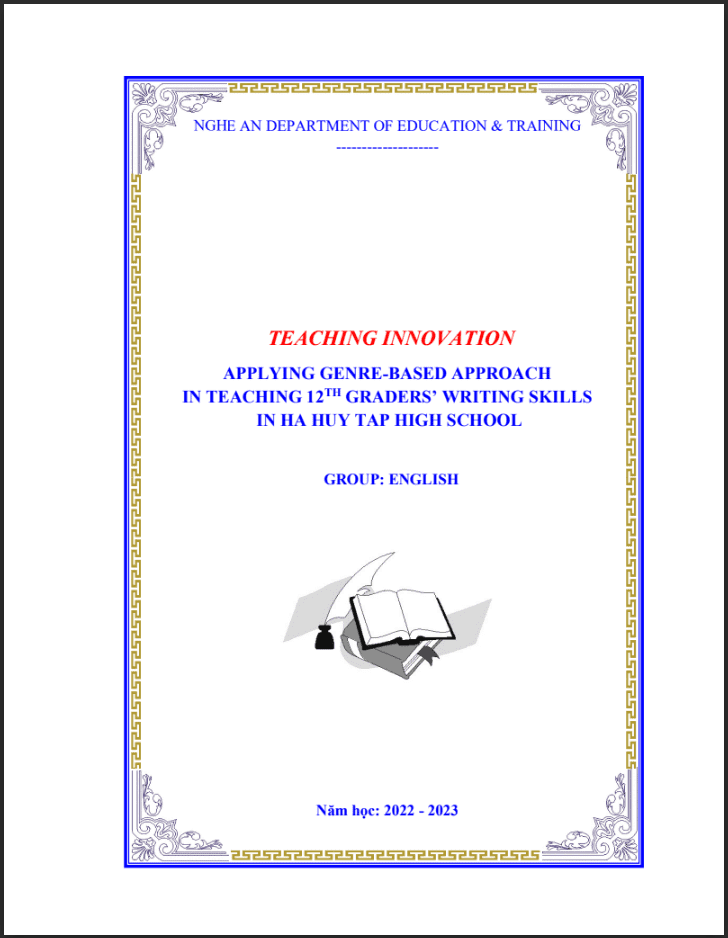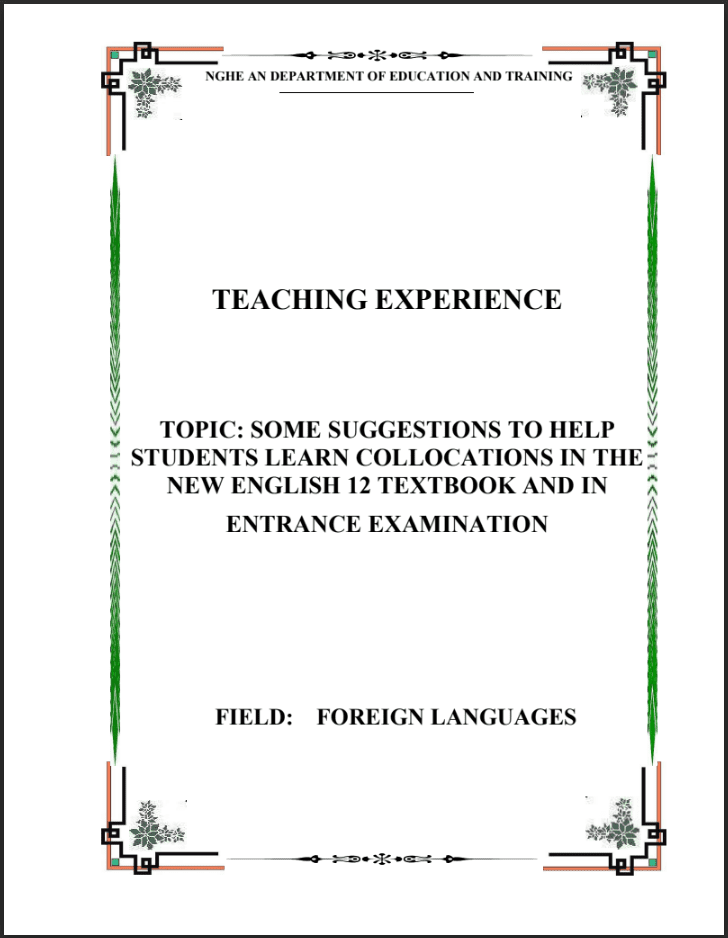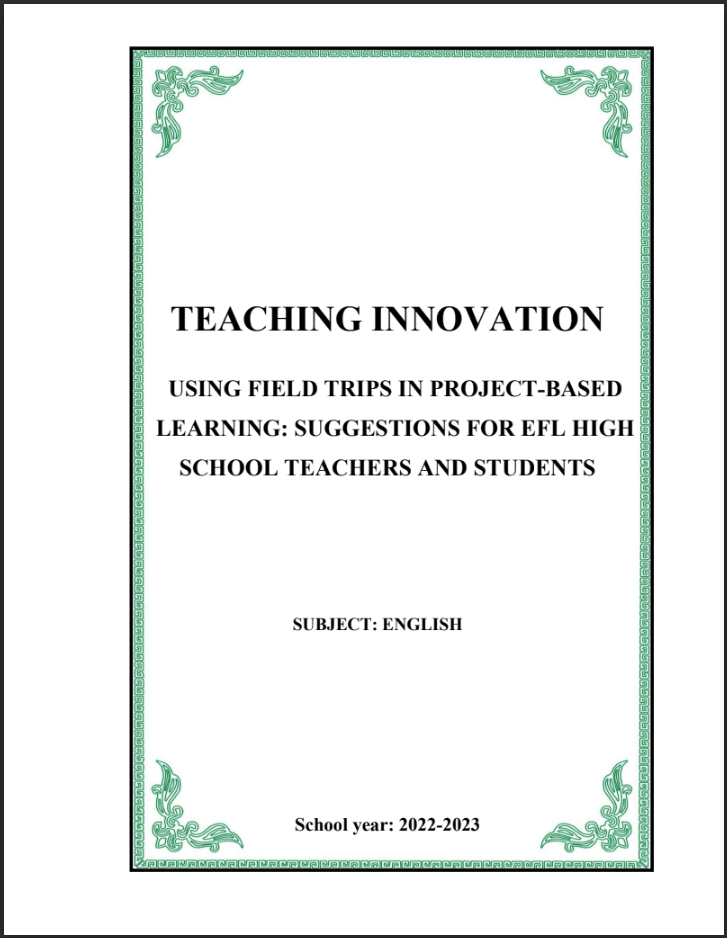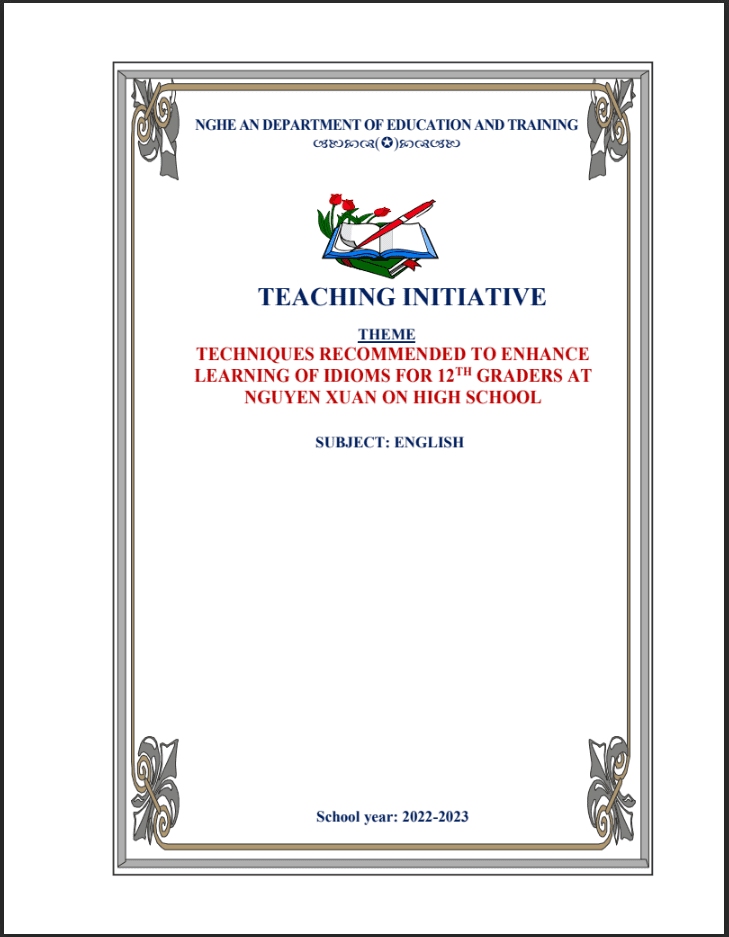SKKN “Using Extensive Reading to improve teaching reading skill for the 11th graders at a high school.
- Mã tài liệu: MP0106 Copy
| Môn: | Tiếng Anh |
| Lớp: | 11 |
| Bộ sách: | |
| Lượt xem: | 596 |
| Lượt tải: | 1 |
| Số trang: | |
| Tác giả: | Trần Thị Hồng Nhung |
| Trình độ chuyên môn: | Thạc sĩ giáo dục |
| Đơn vị công tác: | THPT Thái Hòa |
| Năm viết: | 2022-2023 |
| Số trang: | |
| Tác giả: | Trần Thị Hồng Nhung |
| Trình độ chuyên môn: | Thạc sĩ giáo dục |
| Đơn vị công tác: | THPT Thái Hòa |
| Năm viết: | 2022-2023 |
Sáng kiến kinh nghiệm ““Using Extensive Reading to improve teaching reading skill for the 11th graders at a high school.”triển khai gồm các biện pháp nổi bật sau:
Mô tả sản phẩm
PART I: INTRODUCTION
1
. 1. Rationale of the study
In recent years, English has become a language for global communication and
has been considered as an effective means of access to scientific and technological
development. To meet these requirements, English has been widely taught almost
everywhere in Vietnam, not only at all colleges and universities, but also at almost
every senior high schools, and English is seen a compulsory subject.
In the process of teaching and learning English as a foreign language,
reading is regarded as the most significant skill for students to gain the knowledge;
Alan contends that “Reading is the most important skill a child can develop, learning
to read is an important skill every child must develop to be successful in school”
(2011:37). In order to develop reading skill, students have to learn strategies to
enhance their vocabulary, their speed of reading, improve their motivation, attitude
and proficiency.
However, due to some objective and subjective reasons, teaching and
learning English in general and teaching and learning reading in particular does not
come up to the study aims. Although teachers always make great effort to provide
students with many opportunities to learn and develop their communicative skills,
how to teach and learn reading effectively is still a big challenge to both teachers
and students at many high schools.
As the teachers of foreign language of a high school, we realize that
students‟ reading skill is limited which affects the acquisition of their four language
skills. It is not easy for teachers to motivate students to take part in the activities of
reading skill comfortably in reading lessons. Most of them often feel hesitant and
anxious when presenting before class. They do not pay more to their attention to
their reading skill. They usually keep silent in reading lessons or they often use
mother tongue instead speaking English. Moreover, it is also not enough time for
students to complete all tasks in reading activities and the teacher may almost have
not enough time for the lectures while students are passive through activities.
The authors, therefore, carried out an extensive reading to improve the
students‟ reading learning. This study aims to investigate the effects of extensive
reading and their attitudes towards the extensive reading.
Our teaching experience is titled: “Using Extensive Reading to improve
teaching reading skill for the 11th graders at a high school. ”
1
.2. The aims of the study:
The study was conducted in order to improve students’ reading through
Extensive Reading at a high school and to make them interesting, exciting and active
in learning and practicing their English, especially reading skill by using Extensive
1
reading and also to see whether it will be helpful and enjoyable or not for them in
practicing their English.
1
.3. The significance of the study:
The results of this study are expected for 2 groups:
The teachers: the teachers based of this study, the writers expected Extensive
–
Reading can be one of the effective method that it will be implemented by the
teachers in term of teaching English reading skill and to solve problems of students’
difficulties in learning reading skill then it will make the learning process in and
outside more interesting and active for students especially for the 11th graders at a
high school.
–
The students: For students, this study expected to give the students the useful
and wonderful English lessons. By using extensive reading will make students feel
excited and interested when they take part in learning English in classroom or at
home. Then it can solve their problems in understanding the meaning of words in the
sentences easily, improve their motivation, attitude, proficiency and enhance speed
of reading. As a result, students are always eager to open their hearts , their mind to
welcome to the new meaningful and cheerful English lessons.
1
.4. Methods of the study: Quasi– experimental design
2
PART II: CONTENTS
2
2
2
. 1.THEORETICAL BACKGROUND
.1.1. Nature of reading
.1.1.1. Definitions of reading
Reading, in general, is a natural and common habit in human life and in
particular, is one of the four main language skills for the foreign language learners.
In teaching reading, it is very important for teachers to understand what reading is.
For teachers of foreign languages, understanding the nature of reading has much
influence on what they will teach in a language classroom, especially in reading
lessons. Therefore, many theorists have studied and given definitions of reading.
Their definitions reflect different points of view.
The earliest definition of reading can be tracked back to Huey (1908). Huey
viewed reading as gathering or choosing from what was written, suggesting that
constant feeling of values which goes on in all effective reading. Huey was
concerned with the process used to gained information from printed page and
focused particularly on the ideas represented in printed form and the means by
which the mind takes note of them. Thorndike (1917: 323 – 332) characterized
reading as reasoning and assumed that it was an active process related to problem
solving. Huey and Thorndike both reflect the belief that reading requires both
visual and non-visual information, which supports recent findings that prior
knowledge about experience involving language – the syntactic, semantic, and
orthographic elements used to create text – is stored in the reader’s mind, enabling
them to predict meaning.
Reading can be seen as “a process whereby one looks at and understands
what has been written” (Williams, E., 1986:2). It is noted that reading 8 aloud
without understanding does not count reading. However, it does not mean that a
reader needs to understand everything in a text as well as to look at all written
symbols that appear on the page. Simply, reading means “reading and
understanding” (Ur, P. 1996: 138). Harmer J (1991: 190) seems to be interested in
the notion of reading. He says “reading is an exercise dominated by the eyes and
the brain. The eyes receive message and the brain then has to work out the
significance of these message”. Moreover, Rubin, J. and Thompson, I. (1982:91)
offer another definition of reading as follow: “Reading is an active information-
seeking process in which readers relate information in the text to what they already
know”. From this point of view, the reader’s knowledge of the language and
knowledge of the world is of important to their reading success.
In the book “Becoming an effective reading teacher” (1941) Robinson and
Good write “Reading comprehension is best described as an understanding of the
printed page based on the individual’s unique background of experience. Reading
3
TÀI LIỆU LIÊN QUAN
- 7
- 105
- 1
- [product_views]
- 5
- 173
- 2
- [product_views]
- 4
- 165
- 3
- [product_views]
- 4
- 129
- 4
- [product_views]
100.000 ₫
- 6
- 434
- 5
- [product_views]
100.000 ₫
- 2
- 507
- 6
- [product_views]
100.000 ₫
- 9
- 546
- 7
- [product_views]
100.000 ₫
- 4
- 409
- 8
- [product_views]
100.000 ₫
- 2
- 595
- 9
- [product_views]
100.000 ₫
- 0
- 538
- 10
- [product_views]

